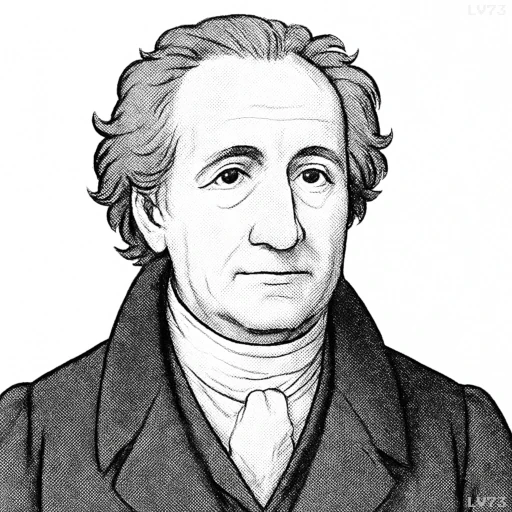“Talk well of the absent whenever you have the opportunity.”

- August 28, 1749 – March 22, 1832
- German
- Poet, playwright, novelist, philosopher, politician
table of contents
Quote
“Talk well of the absent whenever you have the opportunity.”
Explanation
Goethe emphasizes the importance of speaking positively about others, even when they are not present. This idea encourages generosity in our words and character, as it reflects respect for others and builds trust. When we speak well of someone in their absence, we demonstrate integrity and honor, and it strengthens our own reputation as someone who is fair and kind, even when others are not around to hear. The quote also speaks to the idea that we should not take the opportunity to speak negatively or engage in gossip, but instead, promote a spirit of positivity and support for those who are not present.
Historically, this idea aligns with Goethe’s belief in the value of moral integrity and the idea of respecting others through our actions, even when they are not directly watching. In his time, speaking well of others—especially when they were not around—was seen as a reflection of a person’s character and their commitment to virtue. Goethe, being a thinker deeply concerned with honesty, honor, and moral principles, would have seen the act of speaking positively about others as a key component of personal growth and social harmony.
In modern contexts, this idea is relevant in areas such as communication, leadership, and teamwork. In today’s world, where gossip and negative speech can spread quickly, talking well of those who are absent is a powerful way to foster trust and goodwill. Leaders and team members who speak positively of others—whether in private or public—help to create an atmosphere of support and respect, which in turn strengthens relationships and promotes cooperation. This approach also helps to cultivate a positive work environment, where people feel valued and appreciated even when they are not physically present.
Goethe’s words remind us that the way we speak about others, especially in their absence, reflects our own integrity and character. Choosing to speak kindly of those not present is a small but significant way to contribute to a culture of respect, trust, and honor in our personal and professional relationships.
Would you like to share your impressions or related stories about this quote in the comments section?



